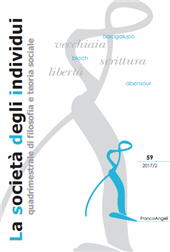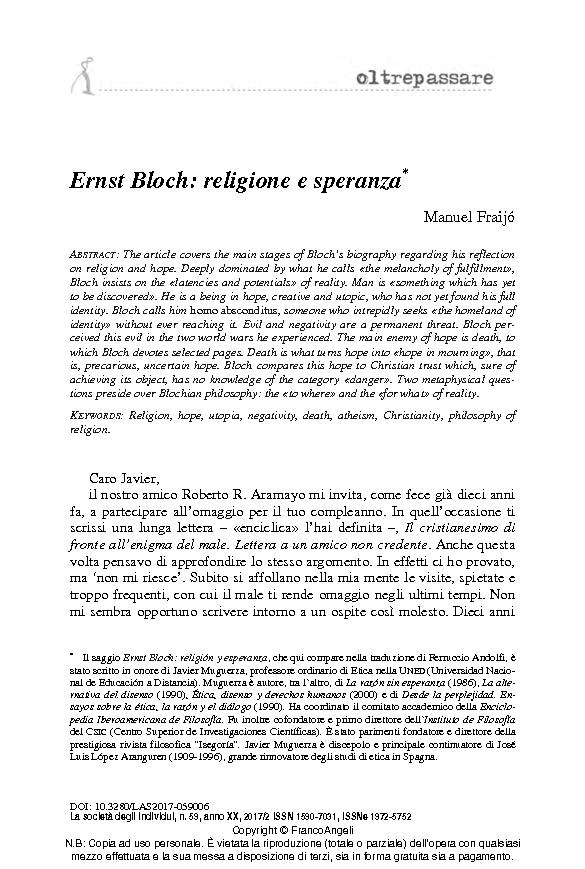Ernst Bloch: religione e speranza
75-86 p.
The article covers the main stages of Bloch's biography regarding his reflection on religion and hope. Deeply dominated by what he calls «the melancholy of fulfillment», Bloch insists on the «latencies and potentials» of reality. Man is «something which has yet to be discovered». He is a being in hope, creative and utopic, who has not yet found his full identity. Bloch calls him homo absconditus, someone who intrepidly seeks «the homeland of identity» without ever reaching it. Evil and negativity are a permanent threat. Bloch perceived this evil in the two world wars he experienced. The main enemy of hope is death, to which Bloch devotes selected pages. Death is what turns hope into «hope in mourning», that is, precarious, uncertain hope. Bloch compares this hope to Christian trust which, sure of achieving its object, has no knowledge of the category «danger». Two metaphysical questions preside over Blochian philosophy: the «to where» and the «for what» of reality. [Publishers' text].
Fait partie de
Società degli individui : 59, 2, 2017-
Articles du même numéro (disponibles individuellement)
-
Informations
Code DOI : 10.3280/LAS2017-059006
ISSN: 1972-5752
KEYWORDS
- Religion, hope, utopia, negativity, death, atheism, Christianity, philosophy of religion



